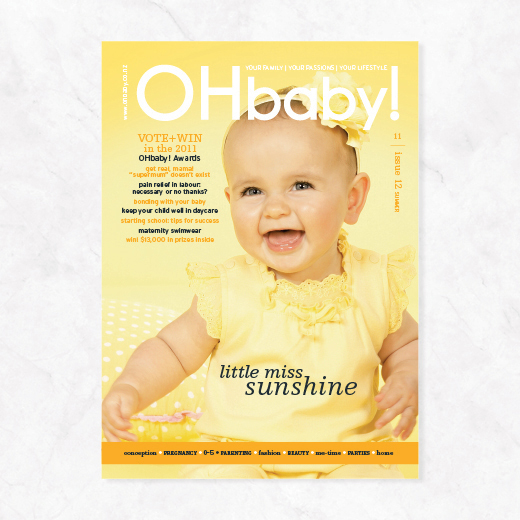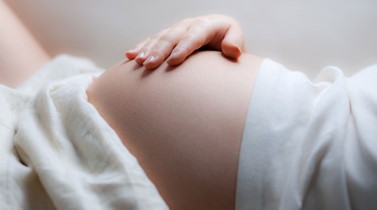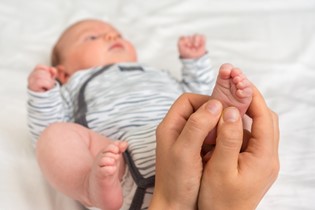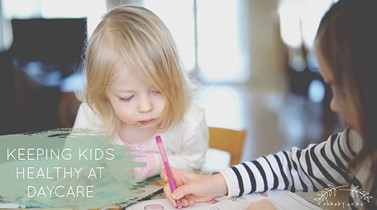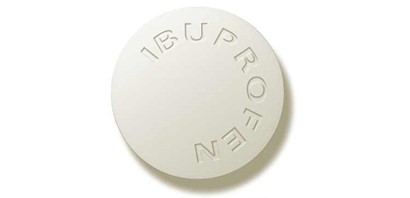How do we actually bond with our baby?

Bonding with your baby: Science, nature, or just random chance? Sarah Tennant investigates the physiology of bonding, discovering the remarkable ways our bodies work to connect us with our offspring.
If you were offered a pill to make you a better mother to your newborn - more attuned to his cues, more committed to breastfeeding, happier and calmer - would you take it?
At first blush it seems like a strange, even offensive question. It is always disconcerting when science links our most soaring and poetic emotions to chemical interactions, and mother love is burdened with thousands of years of lofty prose. For those lucky enough to gaze into their newborn's eyes and fall instantly in love, the question seems almost indecent.
When there are the rest of us; those who spent two days in the birthing centre staring blankly at our baby, wondering politely when we could give it back and resume our normal lives. Some of us may already be taking drugs, in part to be better wives and mothers. We may suffer from chronic depression, bipolar disorder or severe PMS; as such, our stability depends on acknowledging that our biochemistry affects our relationships. We are likely to answer the question with a hearty, "Yes, please!".
As it happens, this pill doesn't yet exist. What does exist is a growing body of evidence that the difference between "good" and "bad" mothers is largely physiological, not psychological. Bonded, well-attuned mothers don't have better morals - just better biochemistry, possibly combined with childcare philosophies which allow their hormones to sing. If scientists can produce neglectful or devoted animal mothers at will by adding or withholding nutrients, it seems worthwhile to examine the biology of bonding.
It turns out that the human body is exquisitely designed for parenting. Sans unnecessary medical interference and aberrant child-rearing philosophies, bonding occurs naturally and strongly. The complex interplay of factors which create good bonding could fill volumes, but certain star hormones deserve a closer look.
Oxytocin
Known variously as the "love hormone", "cuddle hormone", or "mothering hormone", oxytocin is all about social interaction. Chances are you had some floating around your system when the baby was conceived. You also feel its seductive charms when you share a meal with friends, eat chocolate, or hug a loved one. Oxytocin causes people to be more trusting, generous, and empathic and less fearful; it also promotes recognition of faces. In general, high doses of this hormone cause people to feel more positive about social interactions - a handy trait for a mother whose newborn's interactions largely consist of screaming in the middle of the night!
In a normal labour, the body will produce oxytocin to trigger contractions. It will produce it again when the baby suckles after birth. This not only encourages the uterus to shrink back to its pre-pregnancy size, but also begins to bond mother and baby together. According to Linda Palmer in The Chemistry of Attachment, "Under the early influence of oxytocin, nerve junctions in certain areas of a mother's brain actually undergo reorganisation, thereby making her maternal behaviors 'hard-wired'."
Unfortunately, birth interventions can disrupt this hard-wiring. Synthetic oxytocin is commonly used in induced labours, and given with epidurals to compensate for the resulting slowed labour. Synthetic oxytocin has been shown to reduce the levels of natural oxytocin produced by the mother. One study noted that women with epidurals and analgesics had lower oxytocin levels and breastfed their infants less frequently than woman who birthed naturally. Additionally, women who cannot breastfeed don't get a "top-up" of the hormone every time their baby eats.
Researchers are now so aware of the importance of oxytocin that a partial solution is being investigated in Sydney. New mothers are being given oxytocin in the form of a nasal spray, along with play therapy, in the hopes that this will facilitate bonding.
Prolactin
A common experience of early motherhood is sitting down to breastfeed with the intention of getting up as soon as the baby's finished - and remaining in that position for the next hour in a contented haze, after the baby decides to follow her feed with a leisurely nap. You have prolactin to thank for this. The hormone - which, as the name implies, is involved in milk production - fosters bonding in a rather sneaky way, by causing you to feel relaxed and lethargic while you nurse. (Incidentally, this phenomenon was not discovered by medical science. Victorian novelist and mother of six Elizabeth Gaskell mentions it repeatedly in her 1863 novel Sylvia's Lovers.)
Prolactin also obliquely encourages bonding by reducing sexual desire and fertility - nature's way of ensuring the current baby gets its fair share of cuddles before a new one comes along. If that sounds a bit staid, fear not - high prolactin levels stimulate the production of opioids. Yes, parenting is literally addictive.
Opioids
Opioids reinforce advantageous behaviour for mother and baby that might otherwise be considered too troublesome to bother with - learning to suckle for a sleepy newborn, or cuddling the baby for a sleep-deprived mother (or father). Because the brain gets a "fix" every time these activities are performed, they gradually become associated with pleasure. This is also how "loveys" and security blankets work - by associating them with a pleasurable activity such as feeding, the baby learns to feel pleasure in the presence of the object. Like any addictive substance, opioids run the risk of losing their effectiveness over time. Fortunately, oxytocin inhibits this effect, ensuring the brain continues to get a high from the same stimuli.
Manganese and zinc
There's a reason prenatal vitamins contain manganese and zinc: Without them, you might eat your baby. Well, not quite - but numerous studies have shown that animals deficient in these elements tend to be sub-par in the parenting department. Some forget to lick and suckle their babies, while others just wander off. In animals, this is often associated with first-time mothers forgetting to eat the placenta, which is full of nutrients including zinc. Indeed, many human societies around the world engage in placentaphagy (placenta-eating) to prevent PPD and rebuild nutrient and iron stores. For the (slightly) less squeamish, placentas can be dried, ground, and put into capsules for as-needed feel-good doses. If that doesn't sound appealing, regular zinc and manganese supplementation are also beneficial. One study found that mothers on zinc supplementation reported feeling less tired, more energised and less irritable. Their babies also seemed more content, and the women tended to breastfeed for longer.
Deciphering the body's messages
So what are these hormones and minerals trying to tell us? Firstly, that bonding is important. These complex biofeedback systems exist for a reason. Many rather heartbreaking studies demonstrate that bonding is far from being an "optional extra" for privileged middle-class babies - it is necessary for life.
Babies who do not receive near-constant love, touch and attention suffer permanent brain changes which shape how they respond to stress and relate to others. Elevated cortisol levels from constant separation anxiety prevent a baby's brain from focusing on new learning experiences, stunting her mental development because she exists in a primitive survival state. The science of attachment theory expanded greatly after doctors realised too many babies were wasting away in isolation wards - babies whose nutritional needs were being met, but who were never picked up and cuddled. Today, "kangaroo care" is seen as an effective therapy for premature and sick infants.
Secondly, the biology of bonding tells us that it's not a once-or-never thing. Bonding occurs best during the first 12 hours of life, and if the baby breastfeeds within an hour after birth; but this doesn't mean a mother knocked out after an emergency C-section has no chance for a close relationship with her child.
Many of the bonding systems, such as the opiates system, are cumulative. Mothers whose babies spent their first weeks in the NICU can still initiate baby massage and skin-to-skin contact; mothers who gave up on breastfeeding due to depression can bottle-nurse instead of bottle-propping. Even better, pregnant mothers with a previous history of poor bonding can start supplementing zinc and manganese and planning a low-intervention birth.
Thirdly, the evidence of our bodies shows that the Western belief that attachment makes mothers unhappy is deeply suspect. So many parenting tools and gadgets are designed to separate a mother and her baby. Cots, bouncinettes, schedules, and "cry-it-out" systems all work on the assumption that being separated from your baby will make you both happier. Yet traditional societies, in which mothers are wearing and touching their babies almost twenty-four hours a day have far lower rates of maternal depression and anxiety. The opiates, oxytocin and prolactin produced by regular baby-snuggling may be the best way to treat such feelings - a kind of biological "fake it till you make it" with benefits for your baby as well as for you.
My newborn is now a noisy two-year-old, and I'm beginning to see our early efforts at attachment parenting pay off. I'm also finding that when we get out of sync, I can restore harmony with my toddler with a bit of skin-to skin bonding, nursing and snuggles. Now, if only I could source a vitamin that enabled me to find lost toddler socks...
Sarah Tennant is a freelance writer based in Hamilton.

AS FEATURED IN ISSUE 12 OF OHbaby! MAGAZINE. CHECK OUT OTHER ARTICLES IN THIS ISSUE BELOW
